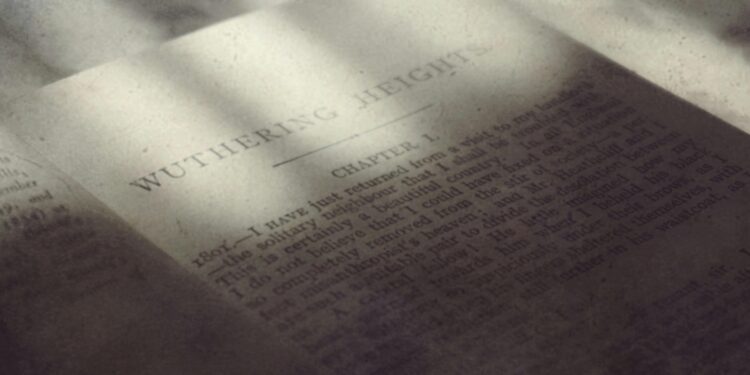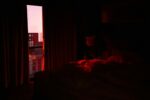Charli XCX to Write Music for New Wuthering Heights Film Starring Margot Robbie

The announcement that pop experimentalist Charli XCX will write the soundtrack for an upcoming adaptation of Wuthering Heights has sent both literary and music communities buzzing.
With Margot Robbie set to star in the lead role, this bold pairing suggests the film won’t be just another period drama—it may instead be a visceral reimagining of a timeless classic for a new audience.
But what exactly is Wuthering Heights, why does it continue to resonate nearly two centuries after its publication, and how might Charli XCX’s involvement reshape its cultural impact? Let’s unpack the details.
A Quick Primer: What Wuthering Heights Is All About
For those unfamiliar, Wuthering Heights is the only novel written by Emily Brontë, published in 1847. Set on the haunting moors of Yorkshire, the story is a tale of passion, revenge, and obsession, centred on the turbulent relationship between Heathcliff and Catherine Earnshaw.
Far from being a simple love story, the novel is dark, complex, and often unsettling. Themes of class, revenge, and generational trauma ripple throughout, making it a piece of literature that has inspired debate, reinterpretation, and adaptation for decades.
Its gothic intensity has ensured a place in the literary canon, but also a reputation for being challenging, especially for readers or viewers approaching it without context.
Why This Adaptation Stands Out
There have been numerous adaptations of Wuthering Heights across film, television, and even the stage, but the new production promises to be something different. Margot Robbie’s involvement suggests a performance-driven approach with mainstream appeal, while Charli XCX’s soundtrack promises a sonic layer that modernises the story’s emotional landscape.
This creative blend could act as a bridge, channelling the raw gothic energy of Brontë’s text intact to resonate with younger generations steeped in contemporary pop and electronic music.
Charli XCX: A Risk-Taker in Music
Originator of “brat summer”, Charli XCX has built a reputation as an artist unafraid to experiment. Known for her blend of hyperpop, electronic, and avant-garde sensibilities, she consistently pushes the boundaries of what pop music can sound like.
Her soundscapes are often futuristic yet emotional—qualities that could align perfectly with the stormy, otherworldly essence of Wuthering Heights.
Her track record of collaboration, from mainstream chart hits to underground experimental projects, makes her uniquely positioned to reinterpret a gothic classic for today’s sonic palette. This isn’t just about background music—it’s about reimagining atmosphere through a bold, contemporary lens.
Margot Robbie’s Star Power
On the acting side, Margot Robbie brings both critical acclaim and box office clout. From her performance in I, Tonya and Harley Quinn in DC’s Extended Universe to her global recognition in Barbie, Robbie has shown range and a knack for redefining roles traditionally sidelined.
As Catherine, Robbie is expected to impeccably embody both vulnerability and fiery passion, and her proven ability to play complex characters suggests she’s up to the challenge. Pairing Robbie’s presence with Charli’s soundtrack could amplify the emotional resonance of the film, making it both visually and sonically unforgettable.
What Music Means to Wuthering Heights
Music has always been integral to how Wuthering Heights is interpreted. From Kate Bush’s iconic 1978 single “Wuthering Heights” to various operatic and cinematic scores, the novel has long inspired artists to translate its stormy passion into sound.
By bringing Charli XCX into the project, the filmmakers are signalling a desire to connect with audiences familiar with both pop experimentation and gothic storytelling. It’s not about replicating traditional orchestral cues—it’s about capturing Brontë’s intensity through beats, synths, and a fresh emotional vocabulary.
Reaching a New Generation of Viewers
This adaptation could be a game-changer in how young audiences encounter Brontë. Many first engage with Wuthering Heights in high school or university, often finding it daunting. A visually striking adaptation paired with a contemporary soundtrack might make the story accessible, even alluring, for those more accustomed to fast-paced media and modern soundscapes.
In an age where literature often competes with streaming content, the fusion of Charli XCX’s musical daring and Margot Robbie’s star power has the potential to spark renewed interest in classic literature among Gen Z and Millennials.
Gothic Atmosphere Meets Hyperpop Energy?
One of the most intriguing prospects is how Charli’s hyperpop energy might contrast—and even harmonise—with the brooding gothic atmosphere of Wuthering Heights.
Are we to expect unexpected juxtapositions of distorted synths during moments of emotional unravelling? Will it be haunting vocals layered over storm sequences? Track 10 type beats echoing in scenes of desolation on the moors? Or will it just be a few original songs as the credits roll?
The singer’s more sullen lyricism already seems like a perfect fit for a possible hyperpop interpretation, but finding an opportunity to let Vroom Vroom Charli out will likely be a welcome, chaotic sonic surprise.
This upcoming soundtrack could act almost like another character, intensifying emotions and guiding viewers through the tumultuous arcs of Heathcliff and Catherine. It might also just be a collection of songs inspired by the gothic tragedy, similar to the musical albums from the Hunger Games franchise.
What This Means for Adaptation Culture
In broader terms, this film reflects a trend: blending traditional stories with modern cultural frameworks. Just as Bridgerton reimagined Regency romance with a pop soundtrack, this adaptation of Wuthering Heights could redefine gothic literature for the streaming age.
It highlights how adaptations aren’t just about retelling stories but about reframing them for new cultural contexts. Charli XCX and Margot Robbie’s collaboration exemplifies this cultural remixing—classic narratives seen through the lens of contemporary icons.
Potential Challenges
Of course, not everyone will be on board. Purists may argue that Brontë’s work should remain untouched by modern experimentation, and hyperpop may strike some as too jarring for a 19th-century narrative. There’s also the challenge of balancing accessibility with authenticity—ensuring the adaptation doesn’t water down the novel’s depth in favour of style.
There’s already rejection coming from users on X, expressing disappointment with the casting, the XCX collab, and any other elements from the announcement that, together with the upcoming film adaptation, they deemed unneeded.
But risk is part of what makes this project exciting. If successful, it could redefine how audiences engage with literary adaptations.
Wuthering Heights: A Cultural Storm Worth Watching
The upcoming film already promises to be one of the most talked-about adaptations of the decade. With Margot Robbie bringing Catherine Earnshaw to life against Jacob Elordi’s Heathcliff and Charli XCX crafting a daring soundtrack, the project is set to blend gothic intensity with modern pop audacity.
For longtime fans, it’s a chance to see Brontë’s classic reframed in bold new light. For newcomers, it may be the first spark that draws them into one of literature’s most haunting stories.
Ultimately, this collaboration embodies what adaptations should strive for: honouring the spirit of the original while reimagining its impact for the present. As the storm clouds gather over this production, one thing feels certain—the cultural conversation around Wuthering Heights is about to get louder, fresher, and far more exciting.
Next Read: Quiet Luxury and the Anti-Logo Rebellion: Minimalism as the New Status Symbol








